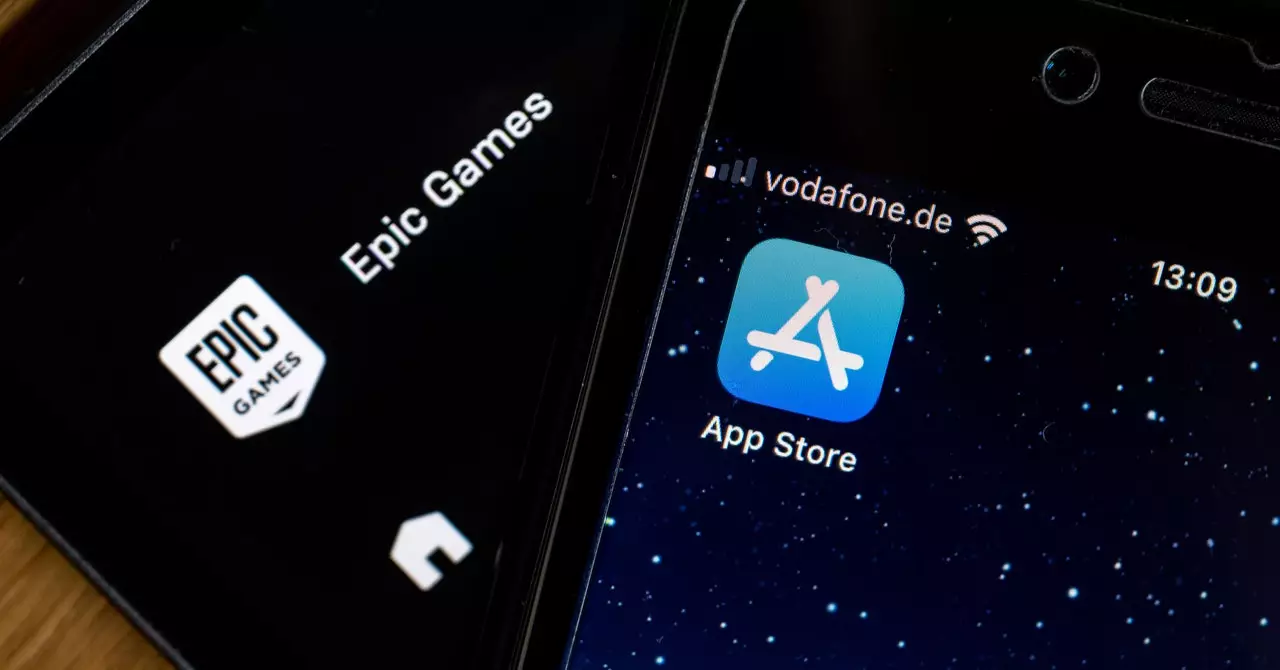The Epic Games Store has officially launched as a rival app store for iOS in the European Union, ushering in a new era of competition for Apple’s own App Store. This move marks a significant development in the ongoing rivalry between Epic and Apple, with Epic now offering its games, including Fortnite, for users to download onto their iPhones. Moreover, the Epic Games Store plans to begin onboarding third-party developers’ games starting in December.
One of the key factors that sets the Epic Games Store apart from Apple’s App Store is the pricing structure. Epic has announced that its app store will only take a maximum of 12 percent commission on sales, which undercuts Apple’s 30 percent fee. This difference in pricing has the potential to shake up the highly lucrative app store business, as noted by Max von Thun, the Europe director at the Open Markets Institute.
Epic CEO Tim Sweeney emphasized the importance of competition in driving innovation and improving the mobile gaming industry. He believes that competition will force Apple to enhance its offerings with better prices, features, promotions, and marketing deals. By introducing the Epic Games Store to iOS, Sweeney aims to address the existing issues in the mobile gaming sector and create a more vibrant ecosystem for developers and users alike.
The launch of the Epic Games Store in the European Union is made possible by the Digital Markets Act (DMA), a new EU regulation that aims to promote competition and give rivals more access to users on tech platforms. As part of the DMA, tech giants like Apple are required to allow alternative app stores on their devices, opening up new opportunities for developers and consumers. This regulatory shift highlights the EU’s commitment to fostering a competitive environment and ensuring fair market practices.
Apple’s response to the DMA has been multifaceted, with the company adjusting its business terms for European developers multiple times in an attempt to comply with the regulations and avoid potential fines. However, the arrival of the Epic Games Store on iOS serves as a clear indication that the EU’s regulatory framework can drive positive change in the tech industry. This development showcases the potential of alternative app stores to stimulate competition, lower prices, and benefit consumers in the long run.
Apple’s App Store has been a cornerstone of the company’s business model, generating significant revenue and establishing a dominant position in the iOS ecosystem. However, over the years, Apple has faced growing discontent from developers over various issues, such as the high commission rates, privacy changes, and restrictive app store policies. These factors have contributed to a shift in developer sentiment and a gradual erosion of Apple’s hegemony in the app marketplace.
The launch of the Epic Games Store as a rival app store for iOS in the European Union represents a significant development in the tech industry. By leveraging the DMA and challenging Apple’s dominance, Epic is poised to reshape the app store landscape and drive competition and innovation in the market. The emergence of alternative app stores like the Epic Games Store signals a new era of opportunity for developers, consumers, and regulators seeking to promote a more open and competitive digital ecosystem.

